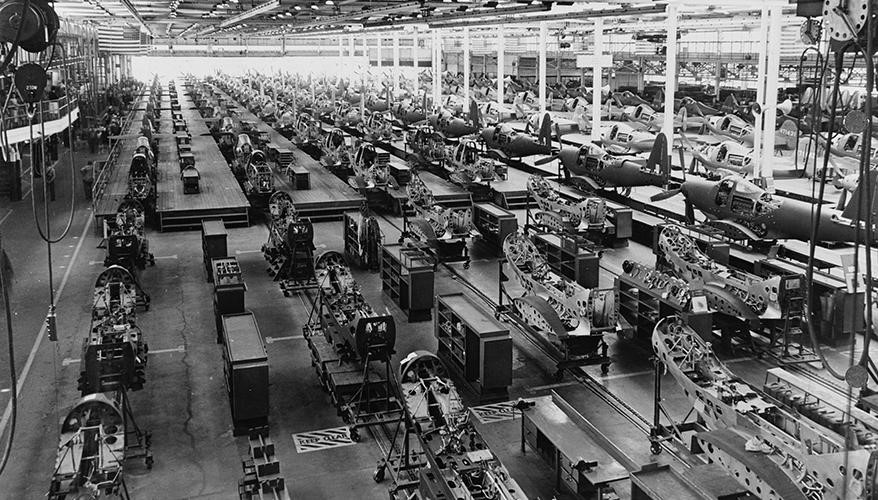
Human Resource or HR is a complex and
specialized department which determines a good chunk of an organization’s
success and profit rates through its activities, decisions, and the ability to
carry out operations. The Aerospace and Defense industries are some of the most
crucial industries in an economy, especially, in the case of India when it
comes to Defense.
The aerospace industry has always stood
out due to its advancements in technology and the practices that they have been
practicing to provide the services that they do so one can have a comfortable
journey from one destination to another. Therefore, to keep the standards up to
the level, the aerospace industry requires top-level management especially in
people management to accommodate and to keep the operations running smoothly.
Therefore, let’s analyze the critical
challenges that HR professionals face in the aerospace industry.
1.
Coping up with Diversity
The aerospace
industry is known for its diversity. A massive diversity in terms of work
profiles, nationalities, generations, and religions. Thus, it gets extremely
important for HR to cope up with the diversity and make the right decisions
while keeping in mind the background of the human capital and how to use them
to its max potential.
2.
Specialization
The aerospace
industry is a highly specialized field; therefore, it requires complex and
demanding recruitment processes. Therefore, the HR professionals require to
have an adequate skill set to get the right man at the right job as incapable
employees could cause serious harm to the aerospace industry.
3.
Digitalization
One of the most
major changes in recent times is the need to go digital with everything for
business operations. And on top of it, managing the human capital with
different backgrounds alongside as mentioned in the first point. With the
introduction of social media and automation in the business, the need to close
the gap between the team’s newer needs and the organization’s or the business’
current requirements becomes a key focus for HR to carry out the business
operations.
4.
Digital Leaders
The concept of
digital leaders is booming recently because of the need to go digital in
business operations as stated in the above point. Therefore, HR has to develop
leaders but not just the traditional and conventional leaders but digital
leaders to incorporate and coordinate with the organization’s daily operations
and help them achieve their targets.
● The above-mentioned challenges HR faced specifically are that of the aerospace industry. Now let’s analyze some of the challenges HR faces in the defense industry.

1. Human Capital
The defense industry is dealing with a variety of military personnel
issues, such as shortages of junior officers for the career force, problems in
retaining certain skills (such as intelligence analysts, computer programmers,
aircraft mechanics, and pilots), and the military services failure to meet
recruiting goals. The sizable reduction in civilian personnel since the end of
the Cold War has led to an imbalance in shape, skills, experience, and
retirement eligibility that is jeopardizing certain acquisition and logistics
capabilities within the defense industry.
2. Recruitment Plan
The defense industry is expected to continue growing, thus
a ‘successful recruitment program is increasingly vital and will require the
tenacious preparation of two components; a strategic recruitment plan and an
annual recruitment and retention plan.”
Major defense companies maintain a recruitment plan, which forecasts a
minimum of three to five years into the future, and provides copious amounts of
facts and data to substantiate the projections. A recruitment and retention
plan consist of current as well as future requirements, which is based on past
and present issues, trends, and data.
3. Dynamics of HR Operations
The identification and development of leadership talent is one process
for an organization to reach and sustain positive governance. HR plays an
active role to ensure that an organization operates with a stable, productive
workforce by establishing and using leading practices in the acquisition,
development, and retention of top people. HR personnel are proactive in the
optimization of a company’s intellectual capital and developing empowered employees’
talent with the use of high impact learning, and knowledge management programs.
4. Recruitment Planning
Processes
The goals behind developing a recruitment planning process are to
identify and attract the best-qualified applicants for the position and to
support affirmative action efforts by targeting underrepresented groups. The HR
representative has an obligation to make sure that the position
responsibilities match the needs of the job being requested, the appropriate
knowledge, skills, and behavioral competencies have been determined, and all
upper-level management approvals have been obtained.
Conclusion
Human Resource is an important department that
determines a company’s fortunes through its decisions and the way they carry
out its operations. Therefore, overcoming these challenges is HR’s main
objective for proper sailing of the operations at the organizations for the
growth of both the organization and the personnel at the organization.